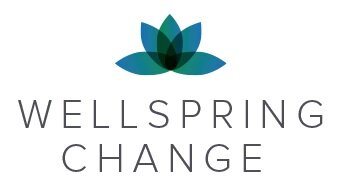I offer counselling to couples at the Natural Practice, and explain here about this work using a family constellations approach.
Couples seek counselling for many reasons. For many of us, the pandemic continues to add unprecedented layers of complexity, uncertainty and stressors to this mix. Sometimes couples come to resolve relationship challenges; dealing with the demands of caring responsibilities; seeking support through transitions like retirement, empty-nesters, perhaps seeking to cope differently with ill health. It isn’t always a problem that triggers counselling, sometimes couples build from strong foundations, seeking pathways to deepen connection and intimacy.
My background in person-centred counselling forms the bedrock of my approach. As far as I am able I hold the couple and each individual with unconditional regard, knowing they’re doing the best they can and trusting their innate process. Overlaid is the family constellations modality. Whilst couples work is bespoke, there are some common approaches that I share below.
Working with couples: a systemic perspective
The couple, as two individuals, is influenced by the multiple systems to which each person belongs: their families of origin, patterns of relating to others, their work, cultural beliefs, and backgrounds, spiritual or religious perspectives, political views, hobbies and passions and so much more besides.
Our work begins with understanding what the couple is seeking: what brought them to counselling. Each partner completes an intake questionnaire which addresses that in the context of many of their wider system, e.g. their family of origin history. I often ask ‘what does a good outcome look like for you both?’ It’s an apparently simple question, and both reflect on and communicate their wishes - to me, and to one another. Once we have sufficient consensus on good outcomes, we contract together involving the practicalities of how we will work, frequency of sessions. Our collective agreements vary, and often include: staying safe; committing to non-violent ways of communicating, being honest and respectful; listening and not speaking on someone else’s behalf.
We then seek to explore and understand how their individual systems-of-belonging combine in their relationship. Some viewpoints and perspectives probably co-exist harmoniously, others create friction in the relationship.
The analogy of a peacock in constellations work.
I sometimes say: imagine you’re looking at your partner as a peacock; their head and eyes is of course your main focus of attention; but imagine too their feathers containing multiple eyes behind them. It is a metaphor for the many lenses through which they understand, interpret and navigate life – in-built patterns of relationship and meaning-making.
Constellations help the couple bring into more conscious awareness their frames of reference (the peacock-feather eyes) and how those inform behaviours in the relationship. Especially under stress we revert to these unconscious patterns of survival and they influence how we communicate, deal with emotions and stress.
The aim is to support both partners to gain a deeper understanding of themselves and their partner’s contexts: the loyalties, unconscious dynamics and patterns that make them who they are. “Why am I this way, why do I have these response-mechanisms?” When a couple understands the other in their wider context, not just as they would like them to be, acceptance helps build understanding. And from there compassion, tolerance and safety enables next steps in the relationship.
The couples work I facilitate is frequently a blended approach of 1-1s and work with the couple, and I offer a free 20 minute online call. From there, we proceed to an initial intake session, and you can read about that here.


